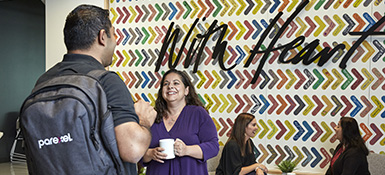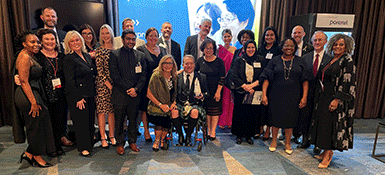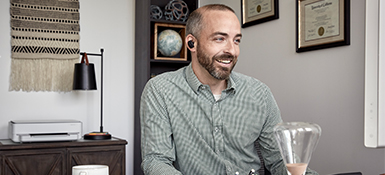Cheng Cai Tang, Director of Clinical Pharmacology Modeling and Simulation (CPMS)
“I am enthusiastic about the potential to significantly impact patients by advancing clinical research.”
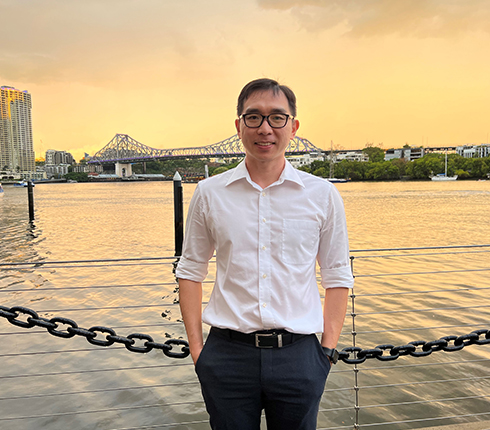
Cheng Cai Tang, Clinical Pharmacology Modeling and Simulation (CPMS) Director, offers us insight into his role, which is to plan, advise, and execute clinical pharmacology strategies on a wider range of therapeutic and disease areas. He is passionate about working in this stimulating and dynamic CPMS team. Cheng Cai also shares with us the skillset to be successful in a CPMS role. In his free time, he leads an active lifestyle and spends quality time together with his family.
Please introduce yourself.
My name is Cheng Cai, and I am a Director of CPMS (Clinical Pharmacology Modeling and Simulation), based in Singapore. Prior to joining Parexel, I worked as a Pharmacokinetic scientist with a pharmaceutical company, focusing primarily on diabetes and obesity disease.
How would you introduce your job?
We plan, advise, and execute clinical pharmacology strategies to help our clients. This involves characterizing how the drug is moving through the body (pharmacokinetics) and understanding its effects on the body (pharmacodynamics).
We also leverage mathematical models and computing power to integrate and analyze vast amounts of data. This enables us to assist our clients in crucial decision-making processes such as selecting the optimal dose, enhancing trial design, and supporting the drug registration process.
Ultimately, my job is multifaceted and dynamic, requiring a balance between scientific expertise, analytical thinking, and effective communication with both internal teams and external partners.
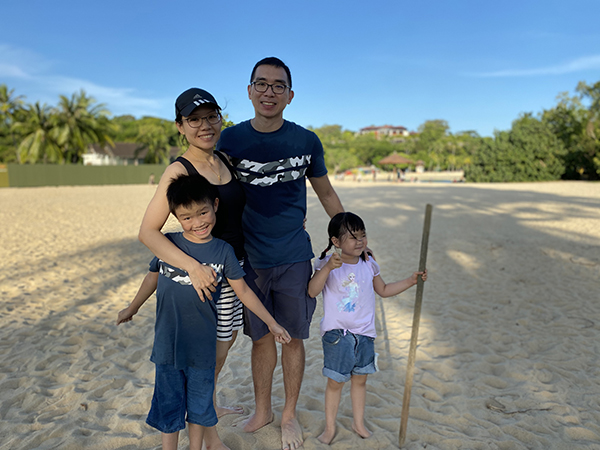 Cheng Cai and his family on the beach
Cheng Cai and his family on the beach
What is the reason you join Parexel?
I joined Parexel because I wanted to pursue my passion for pharmaceutical research and contribute to delivering innovative medicines to patients. Additionally, I sought opportunities to broaden my knowledge and gain exposure to various disease areas while being involved in drug development across all phases of clinical trials. Parexel, as one of the leading Contract Research Organizations (CROs) in the industry, stood out for me.
How is the feeling about working in Parexel?
Working in this fast-paced, highly regulated, and dynamic industry is genuinely exciting. I am thrilled to collaborate with a diverse group of highly talented and motivated individuals as a team. Together, we aim to solve problems and develop tailored solutions for our clients. The opportunity to engage with both small and medium start-ups, as well as big pharmaceutical companies, further enhances the richness of my professional experience. I am enthusiastic about the potential to make a significant impact in advancing clinical research and improving patient outcomes while at Parexel.
What have you experienced at Parexel CPMS team but not anywhere else?
Despite being geographically dispersed across various locations and time zones, the CPMS team at Parexel maintains a strong sense of collaboration and teamwork. We prioritize effective communication and utilize various tools and technologies to enhance collaboration.
Each team member contributes a unique skill set and expertise gained from working with diverse clients. This collective experience allows us to deliver solutions to our clients that are robust and built upon successful precedents.
This diversity within our team also enriches our problem-solving capabilities and brings fresh perspectives to the table. The collaborative and supportive environment in the team also ensures that we consistently deliver high-quality services to our clients.
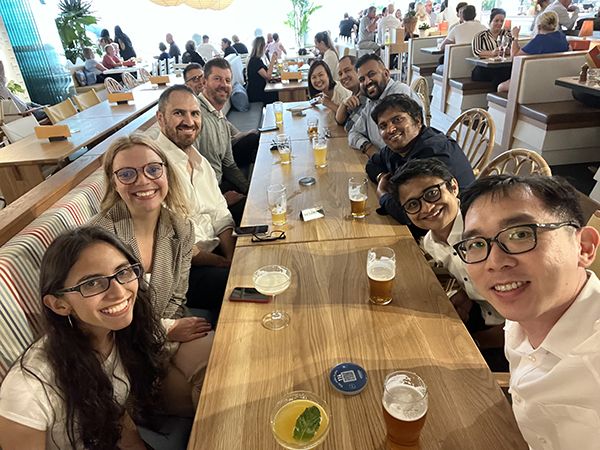
What’s the difference between Pharma and CRO for the CPMS role?
Overall, the CPMS role in pharma and a CRO requires a similar skill set in terms of scientific knowledge and expertise.
In pharma, you often work within a specific therapeutic area or disease focus. Your work is also aligned with the long-term development strategy of the company. This allows for a more in-depth understanding of a particular disease area and the strategic goals of the organization.
In contrast, working in a CRO offers the opportunity to work on a wider range of therapeutic and disease areas. This breadth exposes you to various challenges, objectives, and workflows from different clients. Your focus may be on solving immediate problems for clients or addressing specific project needs. This will also allow you to see the immediate impact of your work. It is rewarding to know that your work will have a positive impact on patients in different disease areas.
What part of your job are you passionate about and would like to share?
I am deeply passionate about building and developing mathematical models. It is exciting to leverage these models to accurately predict and optimize the use of drugs to improve treatment outcomes and enhance patient care.
It is also invigorating to be working with the many talented individuals in the CPMS team. I am constantly inspired by the brilliance and expertise of my colleagues. It is an exciting and rewarding environment to work in, where innovative ideas are encouraged, and each team member's expertise is valued.
The ability to shape the future of drug development and positively impact patients' lives drives my enthusiasm for this field.
What are the departments/positions the CPMS team collaborates with most frequently?
We work closely with the Project Leaders to monitor and update the progress of the clinical trials, so that we can plan and execute timely analyses to support decisions such as dose escalation and study continuation.
We also work closely with the Data Management group to establish data transfer plans and processes and ensure that data required for analysis is properly collected, managed and transferred securely.
We collaborate with the Biostatistics group to develop comprehensive analysis plans that are scientifically sound and aligned with regulatory requirements. This is so that the analyses we do are high quality and can be effectively communicated.
What skills and educational background are needed to be successful in a CPMS role?
Both hard and soft skills are essential in this scientific role. The hard skills will be to have scientific training in areas such as biological sciences, chemistry, statistics or engineering. These different scientific disciplines are relevant when we attempt to unravel the characteristics of a drug using quantitative methods. We also need to have the soft skills of working in a team and have good written communication skills to present and explain the scientific rationale to our clients and regulators.
Can you share the Career Development chances in the CPMS team?
CPMS offers many pathways to grow and develop. I was given opportunities to work on modeling and simulation projects to support different phases of drug development programs which allowed me to refine my technical skills and gain experience in utilizing these models to support decision-making processes. I was also given the chance to work on clinical pharmacology projects which honed my project management skills and tackling challenges across different therapeutic areas.
I joined Parexel to broaden my experience in different therapeutic domains. My work with Parexel so far has exposed me to oncology, metabolic diseases, immunology, eye diseases and gene therapy. This exposure expanded my knowledge and allowed me to gain insights into the unique challenges and advancements in each field.
What kind of advice you’d give to people who’d like to join the CPMS team?
You will find a stimulating and dynamic work environment. You will have ownership over your projects, the autonomy to develop scientific ideas and the chance to apply your expertise to drive innovation.
The team comprises highly talented individuals with a wealth of knowledge and experience. Use this to your advantage and to learn from your colleagues and managers. They can offer valuable guidance and share insights to help you overcome challenges.
The scientific field evolves rapidly, so keep an open mind and embrace a mindset of continuous learning.
What do you enjoy outside of work?
Outside of work, I lead an active lifestyle that revolves around various physical activities. I prioritize daily running and calisthenic workouts to keep myself fit and energized. These exercises help me maintain a healthy balance in life. Going on long walks or cycling with my wife and two children allows us to spend quality time together as a family.
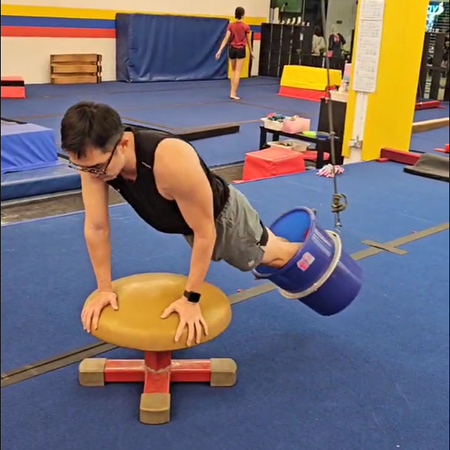
Explore Parexel
Sign up for our Talent Community
Sign up and we’ll reach out with job alerts when positions that match your career interests become available. We’ll also share periodic updates about the latest company news and events.


